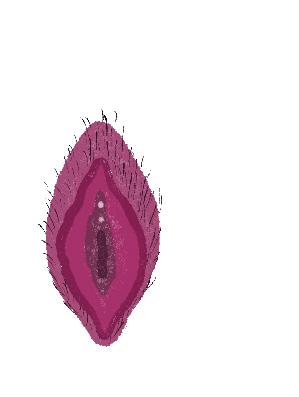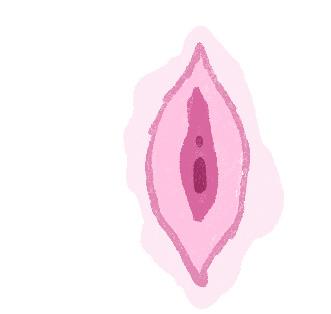
5 minute read
Sh*t I’m Afraid to Ask My Doctor

SH*T I’M AFRIAD TO ASK MY DOCTOR labiaplasty
Advertisement

by Ariana Shaw
In discussing beauty and ugliness, one subject that doesn’t get talked about enough is the beauty of the vulva. Every one is unique, with different layers and folds, sizes and shapes, hair and colors. Some are innies, some are outies. Many people with vaginas have wondered at some point in their lives if their vulva is normal or even thought about what it would be like to change it. They may deal with confidence issues in the size of the labia (vaginal lips), or experience discomfort from the labia for a variety of reasons. For some vulva owners, labiaplasty is an answer. Let’s get into the nitty-gritty and talk about labiaplasty, otherwise known as vulval surgery.
Sources:
Kassel, G. (2020, January 29). Everything you need to know about labiaplasty. Healthline. Retrieved November 20, 2021, from https://www.healthline.com/health/labiaplasty. Kimberly Singh, M. D. (2020, February 11). What is a labiaplasty and what does it involve? American Society of Plastic Surgeons. Retrieved November 20, 2021, from https://www.plasticsurgery. org/news/blog/what-is-a-labiaplasty-and-what-does-it-involve. Miller, K. (2017, December 17). Here’s the only time you actually need labia surgery. SELF. Retrieved November 20, 2021, from https://www.self.com/story/labia-surgery-facts. NHS. (2019, September 19). Labiaplasty (vulval surgery). NHS choices. Retrieved November 20, 2021, from https://www.nhs.uk/ conditions/cosmetic-procedures/labiaplasty/.
what is it?
Labiaplasty is surgery to reduce the size of the labia minora (inner lips of the vulva) or labia majora (outer lips), typically for aesthetic reasons and/or increasing selfconfidence during sex. It’s considered plastic surgery most of the time. Other reasons a labiaplasty may be performed include if the labia chafe painfully or cause discomfort during sex, repairing tears after childbirth, repairing abnormal labia minora, or to remove cancerous skin from the vulva.

Labiaplasty can be performed by either a trim procedure or a wedge procedure. The trim procedure is the most common. It involves literally trimming the length of the labia and stitching it together to heal. A wedge procedure is less common. During a wedge procedure, a wedge of fatty material is removed from the labia to make it thinner, which preserves the exterior texture, length, and look of the vulva. During any labiaplasty, the patient is put under either general or local anesthesia, and the procedure typically takes under one hour to complete.
An important note is that labiaplasty is not the same as gender-affirming bottom surgery, which many trans women get to relieve body dysmorphia. It is done on people who already have vulvas, who want or need a change in the appearance or shape of the vulva.

what are the benefits of labiaplasty?
If labiaplasty is performed for a medical reason, it can be potentially life-saving. The procedure can remove cancer or repair tears in the vulva, stopping bleeding or serious scarring. Frequently people get them after they’ve given birth, if that’s in their plan. This is because birthing can cause stretching and tears of the vulva, so if they get labiaplasty beforehand, it could be a waste of time and money. Labiaplasty also is useful to repair stretching and tears after birth. It can also be life-saving in other ways! Labiaplasty can be gender-affirming in and of itself, even for cisgender women. If the labia are causing any body dysmorphia, labiaplasty can function to solve that and allow the vulva-owner to be the most confident version of themselves. After all, we want you to have as much selfconfidence as possible, in all parts of your body!
how to prepare for labiaplasty:
It can be easy to get approval for the procedure if the patient goes through a plastic surgeon. General doctors or gynecologists typically only approve labiaplasty for medical reasons, or with a consultation from a plastic surgeon or therapist. Doctors recommend that patients be in good health and without any pre-existing, unmanaged, chronic illnesses. The patient should also be in a good space psychologically. Anyone seeking a labiaplasty with a specific vulva in mind will likely be disappointed with the results of the surgery. Afterward, labiaplasty typically requires two weeks off of work, as well as tending to stitches as they heal. Vaginal sex is also off-limits for four weeks post-surgery, and so is using tampons. But some discomfort in the short term is often worth the benefits in the long term!
potential risks:
Any surgery has associated risks. Labiaplasty is no different. Associated risks include but are not limited to, decreased vulvar sensitivity, chronic dryness, numbness, scarring that results in painful vaginal sex, infection, or bleeding. The inner labia can also end up too small, therefore preventing them from doing their job: protecting the vagina. This could result in more vaginal infections later, such as UTI’s.
so, should you get one?
We aim to provide all of the necessary information about labiaplasties we can and a sprinkle of advice. If you have been having pain as a result of the size of your labia or if you are deeply unhappy with the appearance of your vulva, then the general advice is to consult your general doctor or gynecologist about solutions. There are a number of associated costs and risks with labiaplasty, so a doctor may encourage you to try other solutions before turning to surgery. Or if surgery is the best option, you’ll one day be grateful for taking that step! Either way, your doctor can help you make the best decision for your body, mind, and life.
conclusion:
As always, we would like to reiterate that all vulvas are beautiful and worthy of pleasure, and unless there is a medical issue, no one should pressure you into getting labiaplasty. Vulvas come in all shapes and sizes, and it’s completely normal for your labia to look different than others you’ve seen. If your labia are truly interfering with your daily life, ask a doctor for their advice! We want you to feel the best in your skin that you can, and if that means labiaplasty is the solution for you, then we’re happy to have shed some light on the subject!










